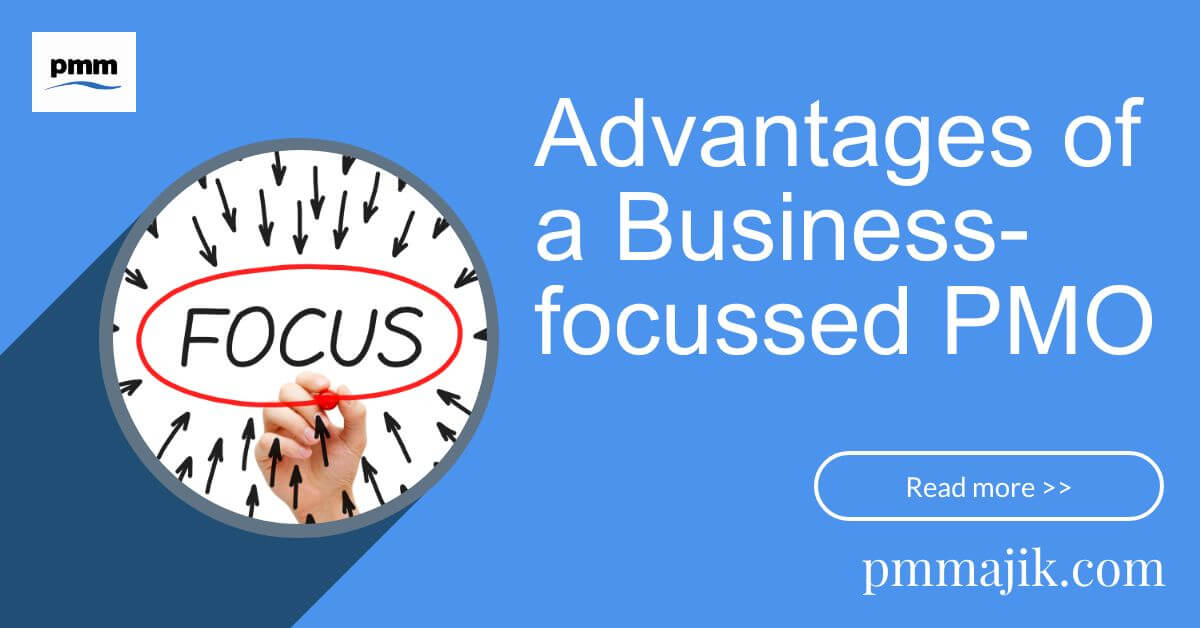It’s not always a clear-cut decision to have a project management office, or PMO, in your organisation. Although a traditional PMO may be of questionable value, it’s worth understanding what the advantages of a business-focussed PMO are.
The biggest difference between the two styles of PMO is that a business-focussed office will focus on the bottom line of the business whilst the traditional model ensures projects are compliant and delivered on time. Here, we’ll cover:
- The functions of a business-focussed PMO
- The benefits of your PMO focussing on the business
- Whether you can have both a business-focussed and a traditional PMO
To help you discern if a business-focussed PMO will work for your organisation.
What does a business-focussed PMO do?
Rather than produce reports and monitor variance and productivity in projects, a business-focussed project management office works to make projects fit the business goals.
To give your PMO the remit of being business focussed, you’re asking them to do a number of tasks. These include:
- Assess the viability of projects for your business to ensure that they align with the culture, strategy, and goals of your company
- Lay out the standards expected from projects in terms of what they will deliver for productivity and return on investment
- Ensure that projects can adapt and change to an evolving business climate so the deliverables remain relevant
- Support project managers in their role as a leader of a team and project by providing training and development to personnel
All of which means the focus on reporting data, monitoring timeframes, and being assessed on completion dates become much less important. Indeed, these functions may land with a different department or office entirely.
What are the advantages of a business-focussed PMO?
A business-focussed project management office is there to deliver projects that will represent a decent return on investment for the company. This isn’t always about immediate profitability. Human resources related projects or premises improvement are still vital even though there might not be a huge profit increase immediately.
With a PMO that has a remit to look after the business’ aims, the projects that get proposed to the board should be more effective. The PMO will have assessed the impact that can be made and that it’s measurable and achievable.
The business will see an uplift in performance. A business-focussed PMO is there to enable projects and support project managers so performance will be enhanced across all activity that falls under the office.
Projects will be flexible and adaptable, which is especially useful when projects are long-term or your industry is fast-paced. When your PMO is tasked with delivering results, it will be able to adapt expectations based on reality.
Does a traditional PMO still have a place in an organisation?
Although a lot of the benefits of a business-focussed project management office seem to stand in direct opposition to a more traditional PMO, that by no means makes them defunct. A traditional-style PMO can be necessary and important in a business.
Governance and data analysis are still needed, and are important to allow a business-focussed PMO to do its job effectively. Having a certain level of expertise overseeing projects will make them run effectively.
Depending on the size of the organisation, having both types of PMO isn’t out of the question. You can think of the business-focussed PMO as leader of projects. It’s the office’s role to bring about productivity and empower projects to success. To complement it, a traditional PMO is there to manage all the projects and do the monitoring element of projects so the project manager doesn’t have to.
Conclusion
To get the best out of your projects and ensure that they will be value for money, you should have a business focussed project management office. The focus of the office is less about process compliance and more about productivity. The advantages of having a business-focussed PMO include seeing a higher return on the investment in a project, having projects proposed that will have clear and tangible effects on business profitability, and enabling projects to respond to fast-changing market conditions or business situations.






